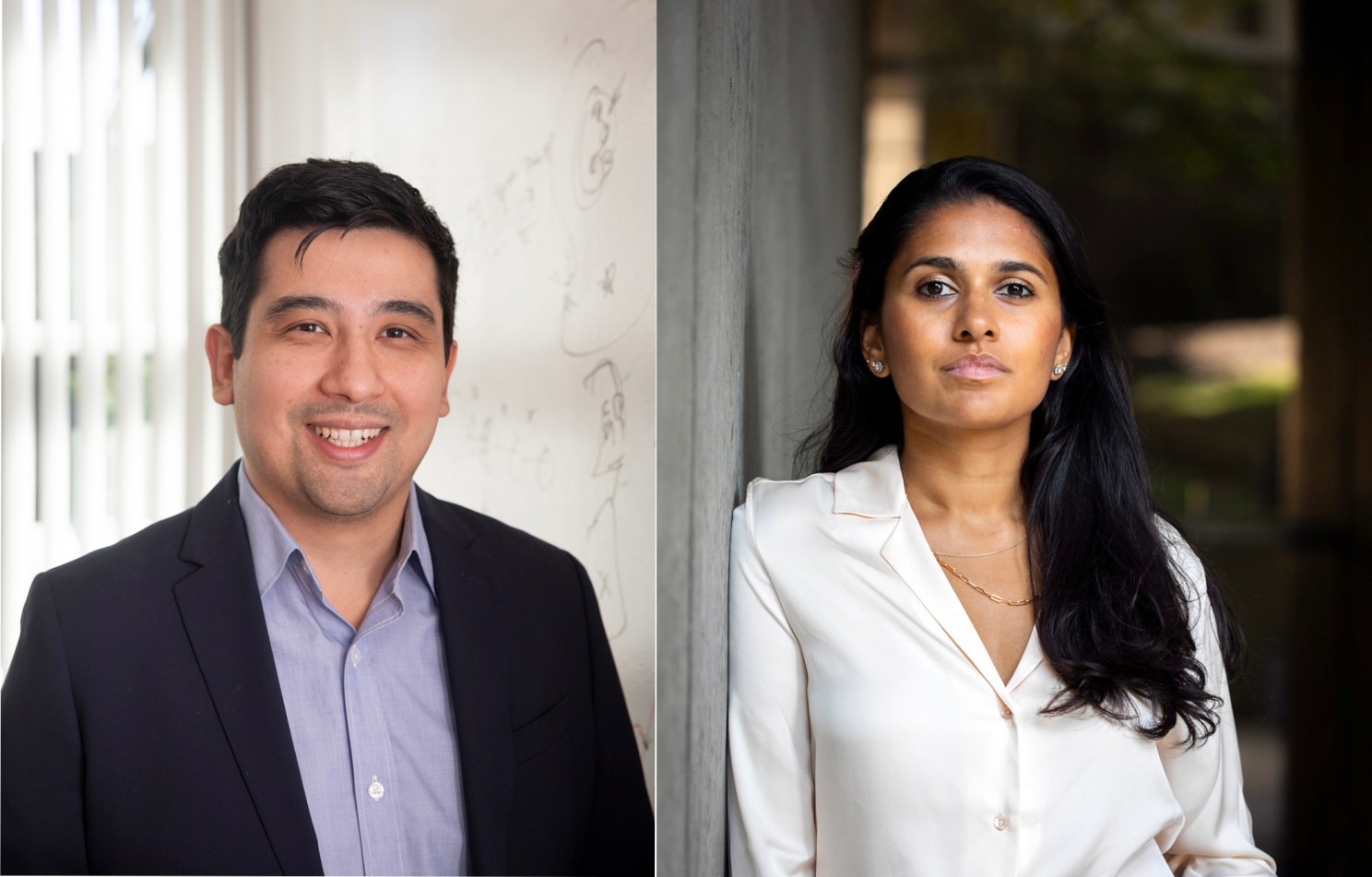Two faculty members receive Roslyn Abramson Award

Jason D. Buenrostro and Tara K. Menon are the winners of the 2025 Roslyn Abramson Award.
Harvard file photos
Jason D. Buenrostro and Tara K. Menon have been named as winners of the 2025 Roslyn Abramson Award, given annually to faculty members for excellence in teaching undergraduates.
“Tara Menon and Jason Buenrostro both bring exceptional energy, rigor, and dedication to their teaching,” said Hopi Hoekstra, Edgerley Family Dean of the Faculty of Arts and Sciences. “Their commitment to fostering inclusive and vibrant learning environments has left a lasting mark on their students and on our academic community. I am delighted that they are receiving this well-deserved recognition.”
Buenrostro, Alvin and Esta Star Associate Professor of Stem Cell and Regenerative Biology, said he feels honored to receive the award, particularly because it recognizes the importance of teaching and mentorship. He runs the Buenrostro Lab which is dedicated to advancing knowledge of gene regulation and the downstream consequences on cell fate decisions. He is also the director of the Biology of Adversity Project and co-director of the Gene Regulation Observatory, both at the Broad Institute of MIT and Harvard.
Central to his teaching approach is giving students the chance to engage directly in research.
“The award inspires us to keep expanding a curriculum centered on hands-on research experiences, particularly in the analysis of large-scale genomic data,” Buenrostro said. “It’s been a joy to teach students epigenetics through the lens of the enduring nature versus nurture debate, which we unravel with modern scientific theories and tools. Students engage directly with real-world data, gaining the opportunity to uncover insights into how we become who we are.”
Menon, assistant professor of English, is completing her first academic book on speech and character in 19th-century novels. She said the award stipend will support this work, as well as her research for her second book about anger in fiction, an idea that came to her while giving a Humanities 10 lecture on “The Iliad.”
Menon said she strives in her teaching to create an atmosphere where students can “lay orthodoxy aside,” and think through questions, embrace new ideas, and argue respectfully with one another without fear of censure.
“Students often enter my classroom because literature provides them pleasure, but I want them to leave it able to think more clearly about the world we inhabit,” Menon said. “What reading novels can do, I promise my students, is to make them better thinkers. My hope is that students of mine recognize literature as an antidote to, but not escape from, our frenetic, polarized, and radically unequal world.”




